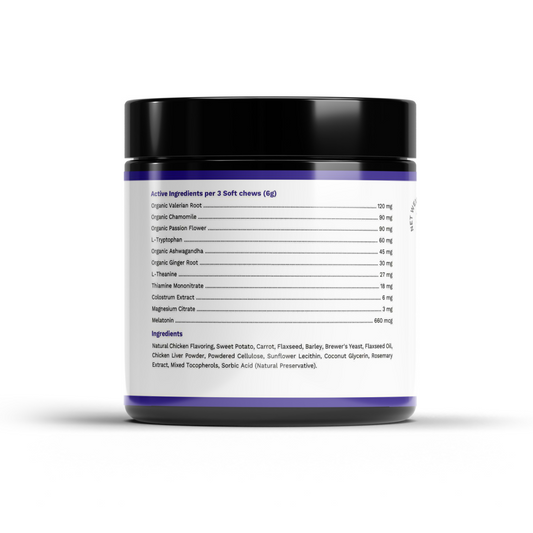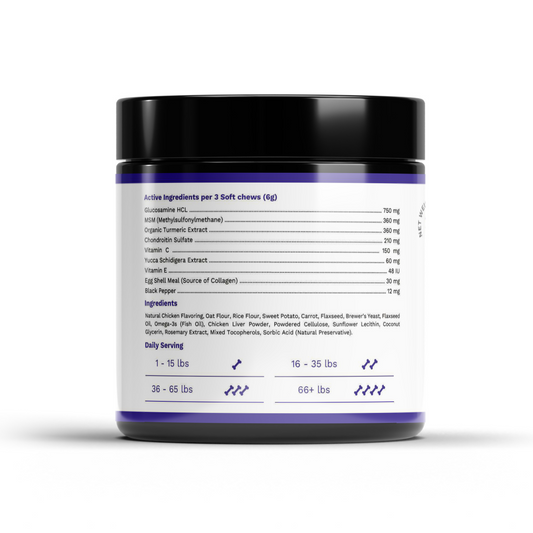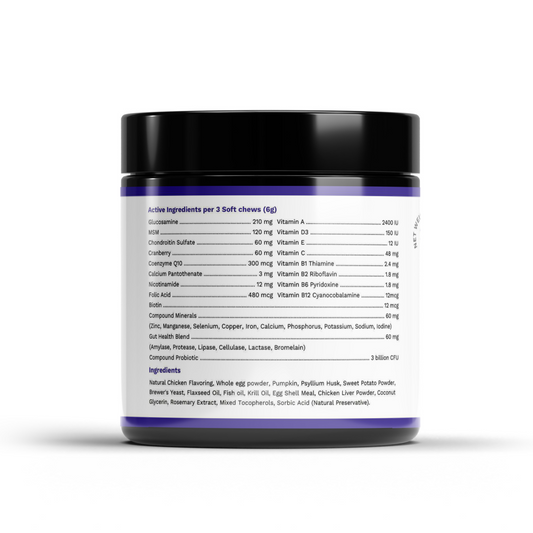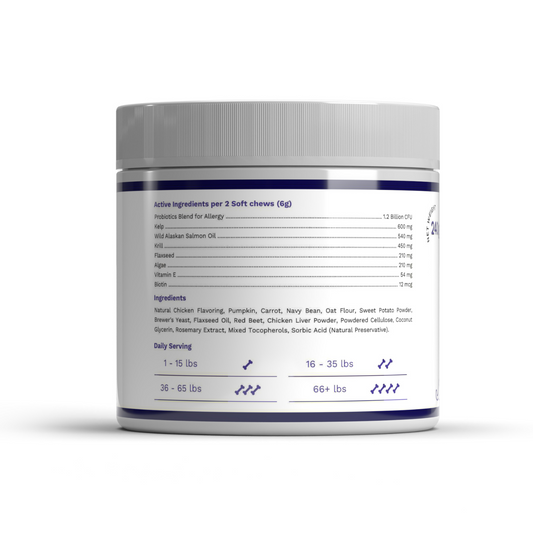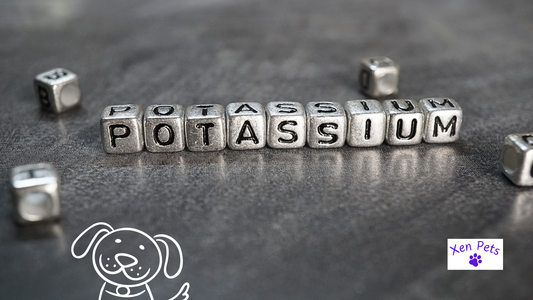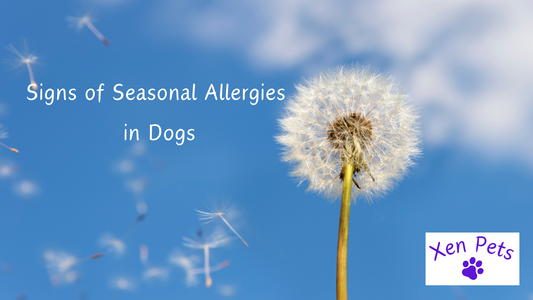Passionflower for Dogs - Uses, Side Effects, and More
Tory JohnsonShare
Passionflower is a climbing vine found in the Southeastern United States and Central and South America.
As early as the 16th century, people have used passionflower for its calming properties.
In this post, we'll discuss these beautiful vibrant purple flowers and the benefits of passionflower for dogs. If your dog suffers from separation anxiety, keep reading.
Shop now: Calming Chews for Dogs (With Passionflower).
Passionflower for Dogs: 6 Benefits (Video)
What is Passionflower?
After its discovery, passionflower was brought to Europe for its use in folk medicine to promote a calm and relaxed state, for pain relief, and other relaxing properties.
Today, passionflower is still widely used for its calming properties. Dog owners everywhere are adding passionflower as a supplement to their dog's food to relieve anxiety.
Supplements are made from a passionflower extract and added as a herbal supplement to treats and chews.
Studies have found that passionflowers contain harmala alkaloids.
Harmala alkaloid increases your dog's gamma-aminobutyric acid (GABA) and prevents neurotransmitters in the nervous system from breaking down.
These neurotransmitters are:
- Serotonin
- Norepinephrine
- Dopamine
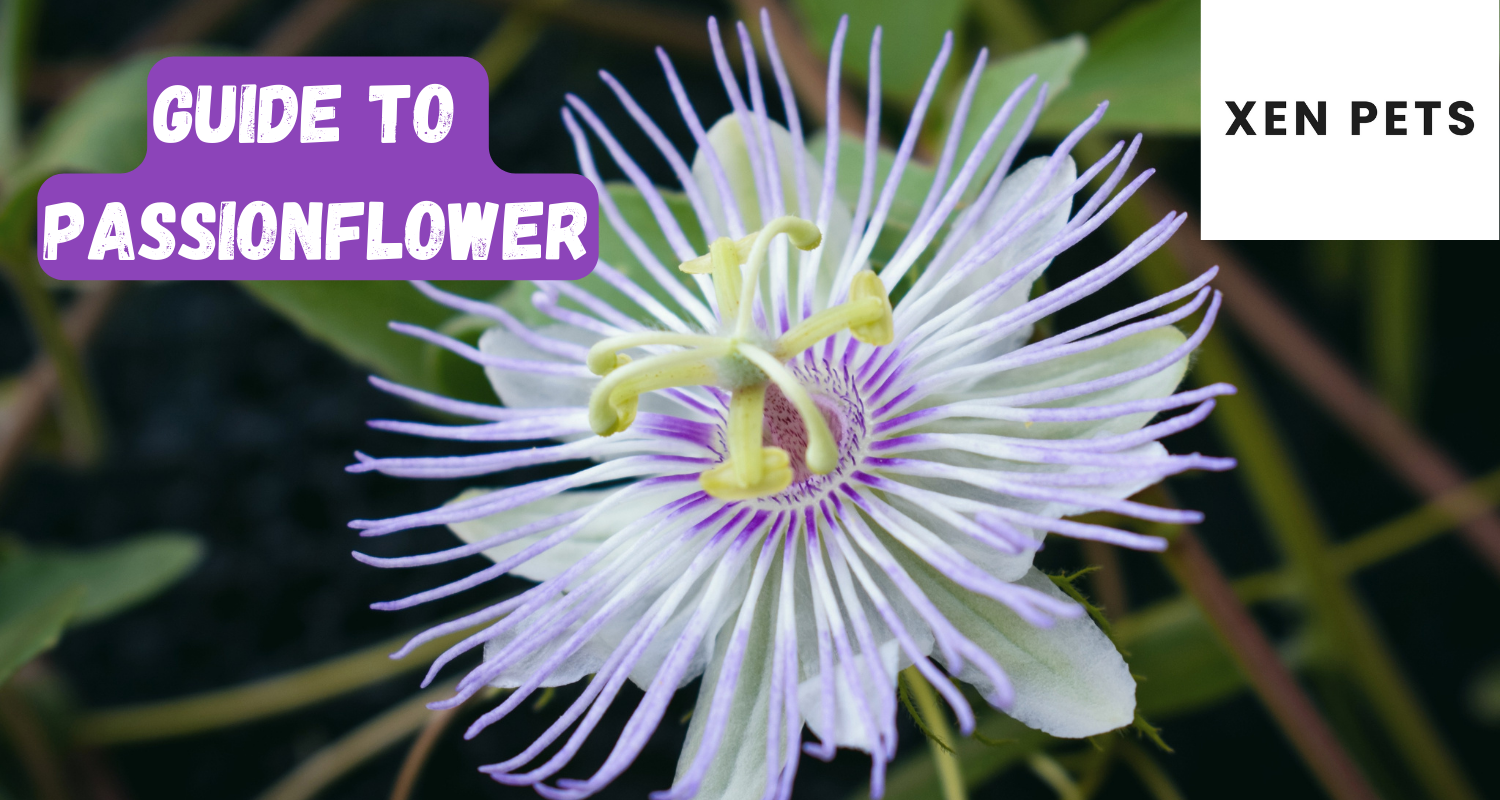
Benefits of Passionflower for Dogs
In addition to separation anxiety relief, passionflower offers a number of benefits for your dog's health and well-being.
5 Benefits of Passionflower
- Mild Sedative
- Controls Pain
- Reduces Inflammation
- Muscle Relaxant
- Promotes Quality Sleep

How Much Passionflower Can You Give Your Dog?
Passionflower is widely considered a safe and natural remedy. It's even an ingredient in our calming chews. The dose between dogs will vary depending on their weight and behavior.
Generally, you can follow the passionflower dosage guide below:
- Liquid Extract: 0.5 to 2 milliliters using a liquid dropper and adding to your dog's food or water.
- Passionflower Tea: 5 - 30 grams per cup. Steep the passionflower in boiling water and let it cool. Add the tea to your dog's water bowl.
- Calming Treats: 90 milligrams per serving. You can give your dog between 1 and 3 servings per day.

Is passionflower poisonous to dogs?
Passionflower is overall considered safe for dogs. However, passionflower can cause certain side effects, such as drowsiness when taken in large doses.
Additionally, it may interact with certain medications, so it's important to talk to your veterinarian before giving it to your dog.
Passionflower Facts
The passionflower vine can grow 30 feet high! The scientific name is passiflora incarnata.
Does Passionflower Work Immediately?
Passionflower taken orally via tea, liquid extracts, or a calming treat may take between 30 and 90 minutes to take effect.
Is Passionflower Safe for Dogs?
Passionflower is mostly safe and non toxic for your dog to ingest. But, there are over 500 species.
It's important to know some species contain cyanide in the berries, leaves, and vines.
While passionflower supplements and teas are safe, it’s important to know the source before giving it to your dog.
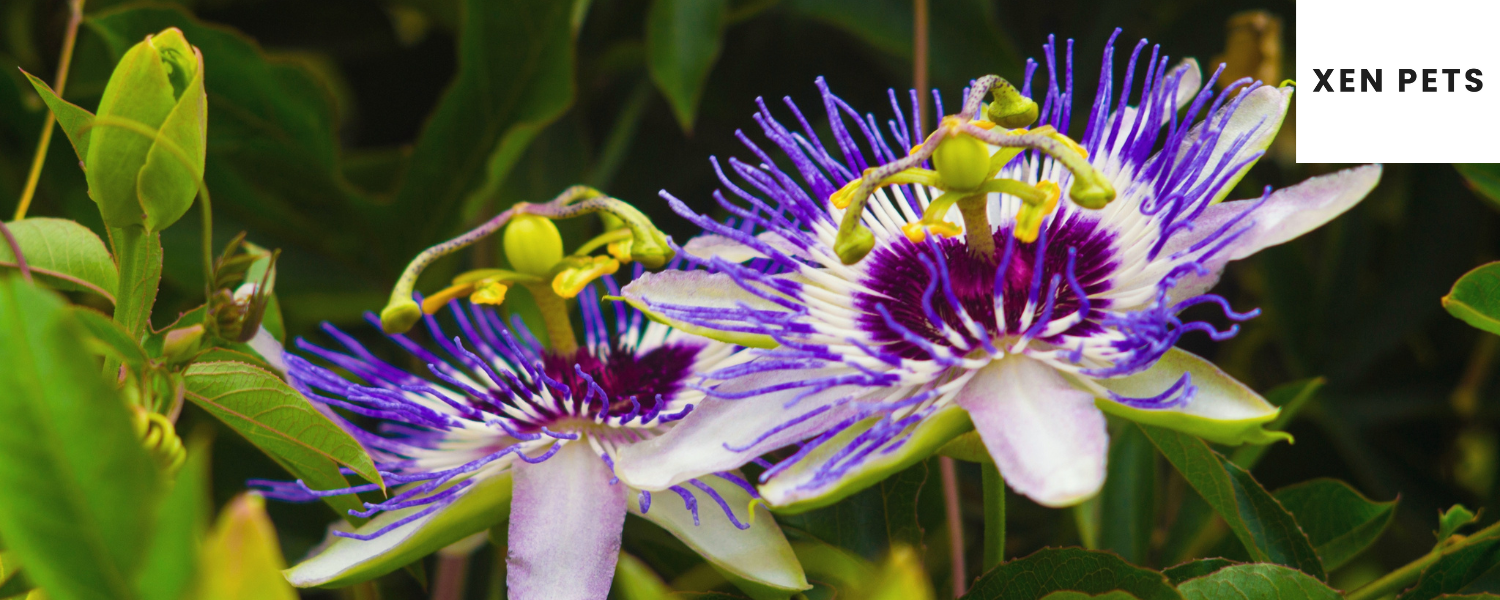
Final Thoughts: Can dogs have passionflower extract?
If you have a dog that suffers from anxiety, it may be time to try giving your dog passionflower.
Xen Pets our Calming Chews include a dose of passionflower and are designed to ease anxiety and help your dog feel more relaxed and comfortable. during stressful situations that would normally trigger their anxiety and excessive barking.
Most calming treats can provide many benefits for your furry friend, including reducing stress levels, promoting healthy sleeping habits, and helping them to stay calm during storms or other noisy events.
But not all contain the natural ingredients in Xen Pets calming treats.
Shop now: Calming Chews for Dogs (With Passionflower).
Give calming treats a try today and see the difference for yourself!


